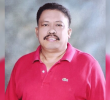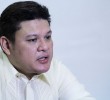DAVAO CITY — A group of bishops said church goers are getting more concerned about issues affecting them like the “pork barrel” system and priests, pastors and bishops must be ready to educate and guide them.
Aglipayan Bishop Redeemer Yanez, a representative of the Ecumenical Bishops Forum (EBF) Southeastern Mindanao, said church goers sometimes pull him in the sidelines after Sunday services to ask about certain details and updates and national issues.
“There is a certain hunger on the part of the people to know more, especially on issues such as corruption as it affects them directly,” said Yanez, “and priests and other church leaders have the pastoral and prophetic tasks to educate and guide them.”
Yanez said “we have to learn how to creatively and confidently do it, even if we are privileged to have a captured audience in sermons. ”
He said “not all issues are also simple to discuss like how the US relates with the Philippines in a military agreement which you cannot explain in one sermon.”
Yanez and about 30 bishops, priests and pastors who are members of the EBF are in Davao City for a “regional consolidation education” activity since yesterday and will end today.
The EBF invited speakers for national issues Enhanced Defense Cooperation Agreement (EDCA) between the United States and the Philippines, the “pork barrel” system, and the Peace Talks.
Yanez said the activity, which they plan to regularize, provides them with updates and details that they have no access to everyday.
“For example, after the Supreme Court declared the pork barrel system unconstitutional, there is a widespread belief that it does not exist anymore. But with update today, we learned that it is still there, that we are still being robbed, the people need to hear that,” said Yanez.
The Priority Development Assistance Fund known as pork barrel funds are discretionary funds of legislators.
Last year, a multi-billion peso “pork barrel” scam was uncovered involving some legislators leading some group to petition its abolition before the Supreme Court.
Yanez said that education “may move people to get more involved in governance and public life.”
“After all, the members of the church are also citizens that must act on these issues to change them for the better,” said Yanez.
Yanez local churches have also local issues to deal with.
“We have mining everywhere and it is moral and just that the church, which include members, take a moral stand on it,” he said.
Meanwhile, Bishop Constante Claro, convenor of the EBF, said their members aim to “consolidate what each of us have learned and experienced from our engagement and advocacies in different issues of human rights.”
“We consolidate our experience and make a stand on issues and we bring them back to the parishioners and church workers,” he said. (davaotoday.com)










